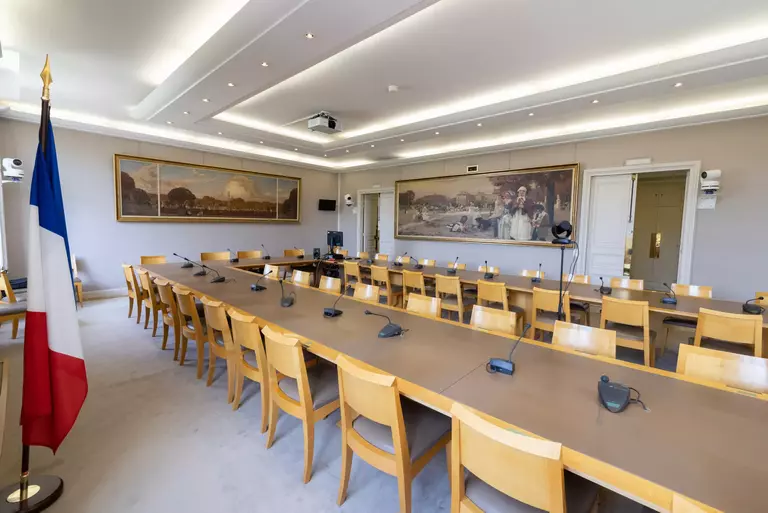Any bill tabled before the Senate is referred for examination to one of the 7 Standing Committees or, on rare occasions, to a special committee. The other committees can intervene to give their own opinion on a bill.
The relevant committee appoints a rapporteur with the mission of analysing the text and of explaining to the Senate the modifications which it would entail for existing legislation and its effects in practice.
Regardless of whether the bill is tabled by the government or by Parliament, the commission generally holds hearings and then adopts a written report with amendments that would modify the bill. Finally, it gives its opinion on the amendments tabled by the senators, the political groups and the government. The commission's amendments are presented by the rapporteur in public sitting and he expresses its view on the other so-called "outside" amendments.
The seven standing committees of the Senate:
- Cultural Affairs (57 members)
- Economic Affairs (39 members)
- Foreign Affairs, Defence and Armed Forces (57 members)
- Finance (49 members)
- Laws (49 members)
- Social Affairs (57 members)
- Sustainable Development (39 members)
The standing commissions frequently hold hearings of members of the government, representatives of trade unions and employers' federations, professional organisations and any specifically qualified individuals. Certain hearings are open to the press and, occasionally, to the public.

